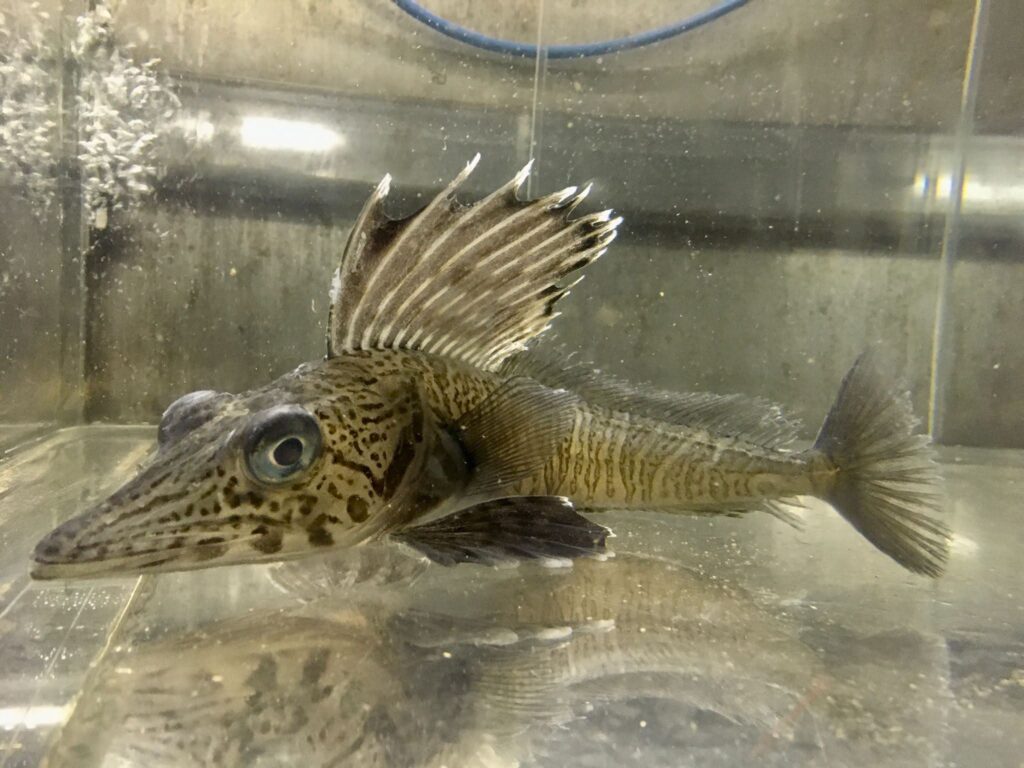In March-April 2022, we are on board RV Polarstern on a research expedition in Antarctica. We are surveying the current species diversity, estimating quantity and in particular, I am interested in icefish physiology. The icefish have adapted to their niche and are likely to be adversely affected by any warming of the waters they inhabit, as the dissolved oxygen content will decrease. The retina is highly sensitive to reductions in oxygen availability (hypoxia). During this expedition, we have collected eyes from 20 icefish of three different species. In each case, one eye has been preserved in formalin, the other is frozen. For comparison, related fish also in the Notothenioid group that do produce haemoglobin have also been collected. Fish otoliths (calcium carbonate deposits found in the ear) can give us the ages of individuals and these have been isolated and kept for each of the fish in the study.
The overall objective is to understand how the icefish retina ages in the absence of haemoglobin. The planned work is preparation and then histological staining and analysis of the retina samples. Histology slides will be examined by microscopy to visualise and record the stained tissues. Western blots will identify how proteins are changed in icefish retina in comparing age and between species. There is potential for a short visit to University of Padua to learn how otoliths are used to inform age and to see the Chioggia Marine Research Station in the Venice lagoon.
The student will be placed in a lab with a number of graduate students and it is usual for thoughtful discussions to take place informally while lab work is carried out. Coordinating their work with the others in the group will be important. There will be plenty of support for the student to help them with their project. If the student collects data that are useful for this project then they will be a co-author on the resulting publication.
To apply
We encourage applications from students from all backgrounds. Please check you meet the eligibility criteria before completing the online data collection form; this form is a mandatory part of the application process, but contains ‘prefer not to say’ options for all questions asked.
Once you have completed the online data collection form you will receive an email with the application form and details of how to apply to the supervisor. The application form should be completed and emailed to the lead supervisor along with a reference from your personal tutor.

